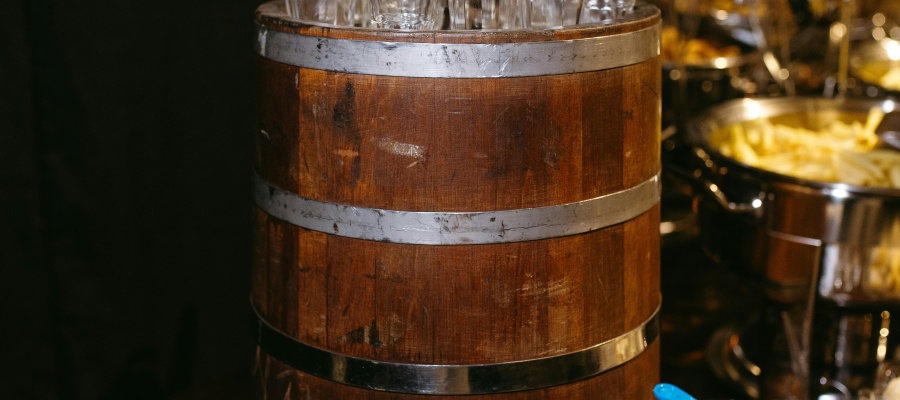After years of legal back-and-forth, a Scottish couple’s case against drinks giant Diageo is finally heading to court. Thomas and Gail Chalmers, who live in Falkirk, claim that their home has suffered serious damage due to black mold allegedly caused by evaporating alcohol vapours—known as the “angel’s share”—from whisky casks stored in a nearby warehouse. A trial date has now been set for March 2025, more than a decade after the couple first filed suit.
A long legal battle nears its climax
The Chalmers initially took legal action against Diageo in 2014, and again in 2017, claiming that Baudoinia compniacensis—commonly referred to as black whisky mould—had contaminated the exterior of their property, including walls, fencing, a patio, and a sundeck. The fungus, which thrives on airborne ethanol emissions from maturing whisky barrels, is a well-known issue near distilleries and bonded warehouses.
The couple allege that the mould infestation has not only caused £40,000 in damage to their property but has also reduced its market value by as much as 10%. They argue that they have spent considerable amounts on professional cleaning, only for the black coating to return repeatedly. The whisky casks in question are reportedly stored at Diageo’s Bonnybridge bond, close to the Chalmers’ home.
Earlier this year, Diageo attempted to dismiss the case on appeal. However, their efforts were rejected by Lady Dorrian, the Lord Justice Clerk, who criticised the “lengthy and lamentable procedural history to the action” and deemed Diageo’s legal argument “irrelevant and lacking in specification.”
Potential implications for the whisky industry
If the Chalmers win the case, it could set a legal precedent with far-reaching consequences for distilleries operating near residential areas. It would be the first ruling of its kind in Scotland—and possibly the world—holding a whisky producer liable for environmental damage caused by maturation-related emissions.
A decision in favour of the homeowners may also influence how local authorities assess planning applications for whisky warehouses going forward. In a separate case in Aberdeenshire earlier this year, residents objected to Snowdrop Developments’ proposal to build a new whisky storage facility for an undisclosed client, citing fears over black mould. Despite the concerns, planning permission was granted. However, should Diageo lose the Falkirk case, councils could become more cautious about approving similar developments.
Diageo’s response and continued defence
Diageo has maintained that it is not liable for the damage and plans to continue defending its position. A spokesperson for the company said: “While disappointed with the decision taken by the court in January, we will continue to defend ourselves vigorously in these proceedings.”
The outcome of the trial could place additional scrutiny on whisky maturation processes and their environmental impact. It may also push distillers to explore more proactive containment or mitigation strategies for ethanol emissions.
A wider issue across the spirits world
The problem of whisky cask mold is not unique to Diageo. Jack Daniel’s, the Tennessee whiskey maker owned by Brown-Forman, is also facing legal challenges related to the black fungus. In March 2023, a court in Lincoln County, Tennessee, halted construction of a new barrelhouse following complaints that Baudoinia mould had coated neighbouring properties, vehicles, trees, and road signs.
Despite the temporary stop order, Jack Daniel’s has plans to build 14 additional warehouses on the site. The case has raised concerns about transparency and community involvement in distillery expansion plans, echoing many of the same issues raised in the Chalmers’ lawsuit.
As the March 2025 trial date approaches, the outcome could signal a turning point for how the whisky industry coexists with nearby communities. The verdict will be closely watched by producers, regulators, and residents alike, with implications for environmental responsibility and the long-term reputation of global spirits brands.


